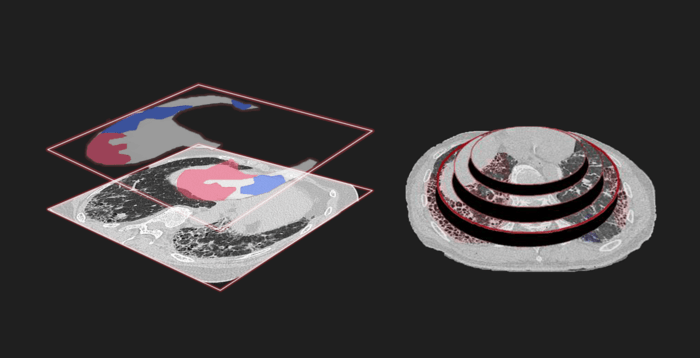NAGOYA, Japan — Many people are still skeptical about allowing artificial intelligence to pick the next song on their playlist, let alone influence major medical decisions. However, groundbreaking new research from Japan reports that a new AI algorithm is on par with human medical experts when it comes to analyzing lung disease.
Scientists at Nagoya University say their newly developed AI program is capable of quickly and accurately diagnosing the lung disease known as idiopathic pulmonary fibrosis. The algorithm uses only information gathered from non-invasive examinations, such as lung images and medical information collected during daily medical care, to reach its conclusions.
Idiopathic pulmonary fibrosis is a potentially fatal condition, known to scar patients’ lungs. Moreover, medical professionals have been waiting a long time for a better way of diagnosing the lung disease as early as possible. Aside from drugs that delay its progression, there are no effective therapies currently available for idiopathic pulmonary fibrosis. It’s even difficult to diagnose the disease in the first place; many doctors have to call in a specialist to make a diagnosis.
Additionally, most diagnostic techniques linked to idiopathic pulmonary fibrosis are highly invasive, meaning they may exacerbate the disease and increase a patient’s risk of dying.

A replacement for doctors or a new tool?
Taiki Furukawa, an assistant professor at Nagoya University Hospital, collaborated with RIKEN and Tosei General Hospital to develop a brand new technology capable of diagnosing idiopathic pulmonary fibrosis. The research team analyzed medical data pertaining to patients in Tosei General Hospital’s interstitial pneumonia treatment facility during normal care. They found that their new AI algorithm diagnosed idiopathic pulmonary fibrosis with a similar level of accuracy as a human specialist.
Despite these results, study authors stress that they’re not trying to replace human doctors. They see this technology as an incredible asset medical specialists can use to ensure that they do not miss opportunities for early treatment. The AI program can also potentially help countless patients avoid unpleasant and potentially harmful invasive procedures, such as lung biopsies.
“Idiopathic pulmonary fibrosis has a very poor prognosis among lung diseases,” Prof. Furukawa says in a media release. “It has been difficult to diagnose even for general respiratory physicians. The diagnostic AI developed in this study would allow any hospital to get a diagnosis equivalent to that of a specialist. For idiopathic pulmonary fibrosis, the developed diagnostic AI is useful as a screening tool and may lead to personalized medicine by collaborating with medical specialists.”
“The practical application of diagnostic AI and collaborative diagnosis with specialists may lead to a more accurate diagnosis and treatment. We expect it to revolutionize medical care,” the study author concludes.
The study is published in the journal Respirology.

